Intro
Discover how Rosuvastatin Calcium improves heart health through cholesterol reduction, lipid lowering, and cardiovascular protection, exploring its mechanisms and benefits in managing hyperlipidemia and preventing cardiovascular disease.
Rosuvastatin calcium is a medication that has been widely used to treat high cholesterol and reduce the risk of cardiovascular disease. It belongs to a group of drugs known as statins, which work by inhibiting the production of cholesterol in the liver. With its ability to lower bad cholesterol levels and increase good cholesterol levels, rosuvastatin calcium has become a popular choice among doctors and patients alike. But how exactly does it work? In this article, we will delve into the mechanisms of rosuvastatin calcium and explore its benefits, side effects, and usage guidelines.
The importance of managing cholesterol levels cannot be overstated. High cholesterol can lead to the buildup of plaque in the arteries, increasing the risk of heart attacks, strokes, and other cardiovascular diseases. According to the Centers for Disease Control and Prevention (CDC), high cholesterol affects over 93 million American adults, making it a significant public health concern. Rosuvastatin calcium has been shown to be effective in reducing cholesterol levels and improving cardiovascular health. But what makes it so effective? Let's take a closer look at how it works.
Rosuvastatin calcium is a synthetic drug that is designed to mimic the natural statins found in certain fungi. It works by inhibiting the enzyme HMG-CoA reductase, which is responsible for producing cholesterol in the liver. By blocking this enzyme, rosuvastatin calcium reduces the amount of cholesterol produced in the liver, leading to lower levels of bad cholesterol in the blood. But that's not all - rosuvastatin calcium also has other mechanisms of action that contribute to its effectiveness. In this article, we will explore the five ways rosuvastatin calcium works to improve cardiovascular health.
How Rosuvastatin Calcium Lowers Cholesterol Levels
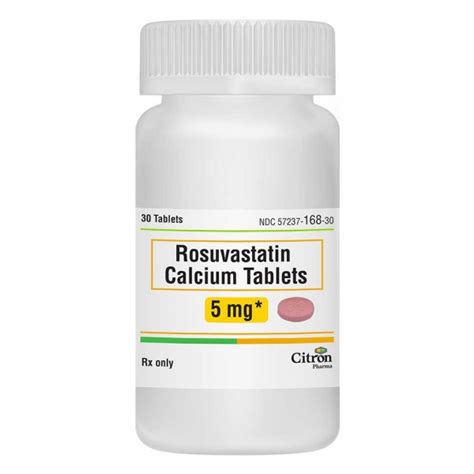
Benefits of Lowering Cholesterol Levels
Lowering cholesterol levels can have numerous benefits for cardiovascular health. By reducing the amount of bad cholesterol in the blood, rosuvastatin calcium can help to: * Decrease the risk of heart attacks and strokes * Slow the progression of atherosclerosis, a condition characterized by the buildup of plaque in the arteries * Improve blood flow to the heart and other organs * Reduce the risk of peripheral artery disease, a condition characterized by the narrowing of the arteries in the legs and armsThe Role of Rosuvastatin Calcium in Increasing HDL Cholesterol
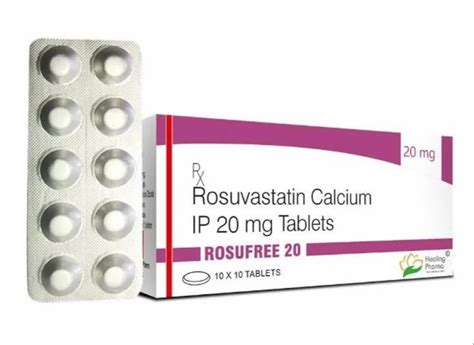
Benefits of Increasing HDL Cholesterol Levels
Increasing HDL cholesterol levels can have numerous benefits for cardiovascular health. By increasing the amount of good cholesterol in the blood, rosuvastatin calcium can help to: * Remove excess cholesterol from the bloodstream, reducing the risk of plaque buildup in the arteries * Improve the function of the blood vessels, reducing the risk of hypertension and other cardiovascular diseases * Reduce the risk of heart attacks and strokes * Improve overall cardiovascular health and reduce the risk of mortalityThe Anti-Inflammatory Effects of Rosuvastatin Calcium
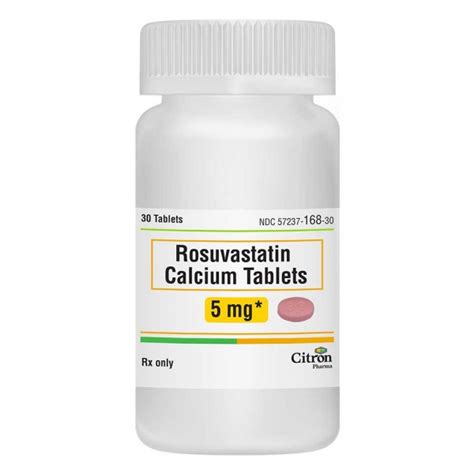
Benefits of Anti-Inflammatory Effects
The anti-inflammatory effects of rosuvastatin calcium can have numerous benefits for cardiovascular health. By reducing the levels of inflammatory markers in the blood, rosuvastatin calcium can help to: * Reduce the risk of atherosclerosis and other cardiovascular diseases * Improve the function of the blood vessels, reducing the risk of hypertension and other cardiovascular diseases * Reduce the risk of heart attacks and strokes * Improve overall cardiovascular health and reduce the risk of mortalityThe Effects of Rosuvastatin Calcium on Triglycerides
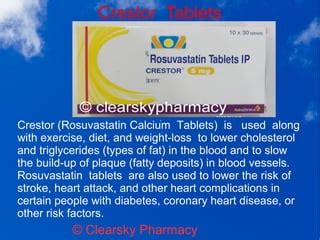
Benefits of Reducing Triglycerides
Reducing the levels of triglycerides can have numerous benefits for cardiovascular health. By decreasing the amount of triglycerides in the blood, rosuvastatin calcium can help to: * Reduce the risk of atherosclerosis and other cardiovascular diseases * Improve the function of the blood vessels, reducing the risk of hypertension and other cardiovascular diseases * Reduce the risk of heart attacks and strokes * Improve overall cardiovascular health and reduce the risk of mortalityThe Importance of Rosuvastatin Calcium in Reducing Cardiovascular Risk
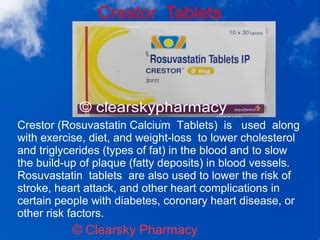
Benefits of Reducing Cardiovascular Risk
Reducing the risk of cardiovascular disease can have numerous benefits for overall health and wellbeing. By decreasing the risk of heart attacks, strokes, and other cardiovascular diseases, rosuvastatin calcium can help to: * Improve overall cardiovascular health * Reduce the risk of mortality * Improve quality of life * Reduce the risk of other cardiovascular diseases, such as peripheral artery disease and atherosclerosisWhat is rosuvastatin calcium used for?
+Rosuvastatin calcium is used to lower cholesterol levels and reduce the risk of cardiovascular disease.
How does rosuvastatin calcium work?
+Rosuvastatin calcium works by inhibiting the production of cholesterol in the liver, increasing HDL cholesterol levels, reducing triglycerides, and having anti-inflammatory effects.
What are the benefits of taking rosuvastatin calcium?
+The benefits of taking rosuvastatin calcium include lowering bad cholesterol levels, increasing good cholesterol levels, reducing triglycerides, and reducing the risk of cardiovascular disease.
What are the side effects of rosuvastatin calcium?
+The side effects of rosuvastatin calcium may include muscle pain, liver damage, and increased risk of diabetes.
How long does it take for rosuvastatin calcium to start working?
+Rosuvastatin calcium can start working within a few weeks of taking the medication, but it may take several months to achieve the full benefits.
In conclusion, rosuvastatin calcium is a medication that has been shown to be effective in reducing cholesterol levels and improving cardiovascular health. By understanding how it works and its benefits, individuals can make informed decisions about their health and wellbeing. We encourage readers to share their thoughts and experiences with rosuvastatin calcium in the comments below. If you have any questions or concerns, please don't hesitate to reach out. Let's work together to improve our cardiovascular health and reduce the risk of cardiovascular disease.
